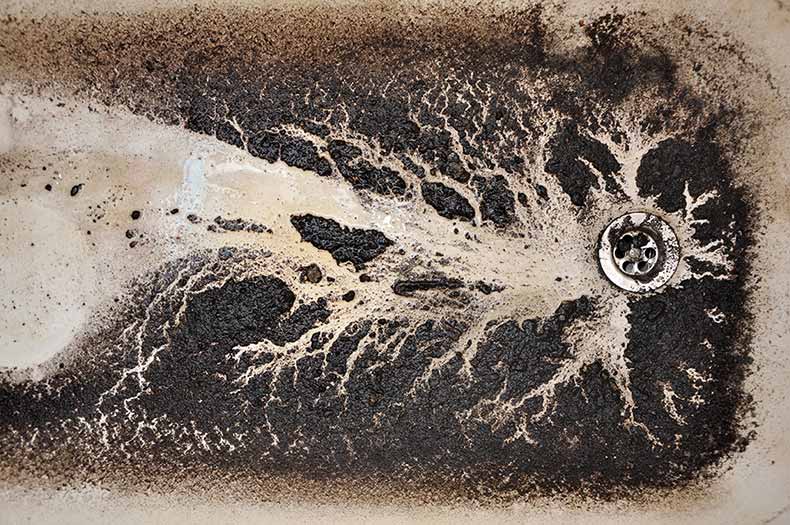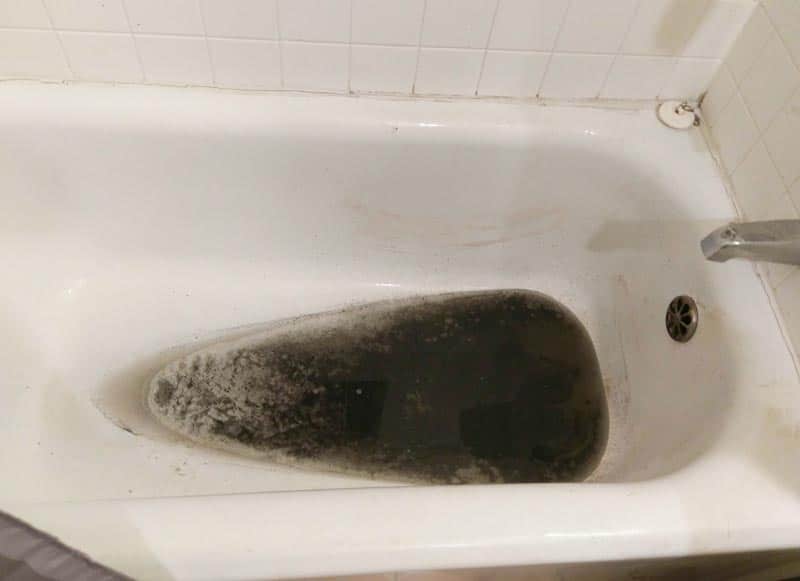Untangling the Causes of Effluent in the Bathtub
Untangling the Causes of Effluent in the Bathtub
Blog Article
They are making a number of good observations regarding Why is There Sewage Coming Up Through the Bathtub in general in this post down below.

Sewage back-up in the tub can be a distressing and unhygienic issue for any house owner. Not just is it troublesome, yet it likewise postures severe wellness dangers and suggests underlying issues with the plumbing system. Recognizing why sewage is coming up via the tub is crucial for taking suitable activity to attend to the issue effectively.
Introduction to the Problem
Recognizing the Issue
When sewage draws back up into the tub, it's a clear indicator of a trouble with the drainage system. The wastewater that should be flowing far from your home is instead discovering its back right into your space, which can lead to considerable damage and health hazards.
Prospective Causes
A number of aspects can add to sewer back-up in the bath tub. From clogs in the sewage system line to concerns with the plumbing framework, recognizing the root cause is necessary for discovering a solution.
Common Reasons for Sewage Backup
Clogs in the Sewage System Line
Among one of the most typical reasons for sewage back-up is an obstruction in the sewer line. This can occur due to the buildup of particles, oil, or foreign items in the pipes, preventing appropriate flow and triggering sewer to back up right into your bath tub.
Tree Root Invasion
Tree origins seeking wetness and nutrients can penetrate sewage system lines through little cracks or joints. Gradually, these origins can grow and expand, causing considerable damages to the pipelines and resulting in sewer back-up concerns.
Aging Facilities
Older homes might have obsoleted plumbing systems that are more susceptible to corrosion, fractures, and degeneration. As pipelines age, they come to be more vulnerable to leakages and obstructions, raising the possibility of sewage backup cases.
Heavy Rainfall or Flooding
Throughout periods of heavy rainfall or flooding, the sewer system might end up being overloaded with excess water, creating back-ups and overflows. This can lead to sewage supporting right into tubs and other components inside the home.
Health And Wellness Risks Associated with Sewage Back-up
Contamination of Water System
Sewage back-up can contaminate the water system in your home, positioning a significant health and wellness threat to you and your household. Direct exposure to contaminated water can cause intestinal concerns, skin infections, and other ailments.
Spread of Disease
Sewage has unsafe bacteria, viruses, and parasites that can cause a series of diseases, consisting of hepatitis, cholera, and gastroenteritis. Entering contact with sewer or polluted surface areas places you in danger of infection.
Mold and mildew Growth
Wetness from sewer backup can develop optimal conditions for mold development in your home. Mold and mildew spores can exacerbate respiratory troubles and trigger allergies in sensitive people, making timely cleaning necessary.
Indicators of Sewer Backup
Foul Odors
Unpleasant smells originating from drains or components, particularly in the bathroom, might indicate sewer backup concerns. These odors are commonly strong and relentless, signifying a problem that needs immediate focus.
Slow Draining Fixtures
Bathtubs, sinks, and commodes that drain slowly or otherwise at all could be experiencing sewage back-up. If several components are affected concurrently, it's most likely that the issue originates from a typical point, such as the primary drain line.
Gurgling Noises
Strange gurgling or bubbling sounds coming from drains when water is running somewhere else in the house are a measure of air entraped in the plumbing system. This air build-up can arise from sewer back-up and ought to be explored without delay.
Immediate Actions to Take
Shutting Off Water Supply
In case of sewer backup, it's necessary to switch off the water system to avoid further contamination and damages. Situate the primary water shutoff valve in your house and shut it off till the problem can be fixed.
Getting In Touch With a Professional Plumber
Managing sewer backup is not a DIY task. Contact a licensed plumber with experience in managing sewage-related issues to analyze the scenario and carry out needed repair services or cleanups.
Preventing Contact with Infected Water
Up until the sewage backup is dealt with, avoid contact with contaminated water to prevent the spread of bacteria and pathogens. Use safety gear if you should remain in the affected location and clean your hands completely afterward.
Safety nets
Routine Upkeep of Drain Lines
Schedule regular evaluations and maintenance of your sewer lines to recognize and address potential concerns prior to they rise into significant problems. This can include cleaning out debris, inspecting for tree root intrusion, and fixing any type of broken pipelines.
Setting Up Backwater Shutoffs
Take into consideration setting up backwater valves in your plumbing system to prevent sewer from flowing back right into your home throughout periods of heavy rainfall or flooding. These valves instantly close when water draws back up, safeguarding your residential property from contamination.
Appropriate Disposal of Household Waste
Prevent purging anything besides bathroom tissue and human waste down the commode to prevent blockages and clogs in the sewer line. Dispose of oil, oil, and other family chemicals properly to minimize the danger of plumbing issues.
Tidying up After Sewage Back-up
Sanitation Procedures
Completely decontaminate and sterilize impacted areas after sewer back-up to remove damaging germs and stop mold growth. Usage proper cleaning items and safety equipment to guarantee risk-free and efficient clean-up.
Reconstruction of Influenced Areas
Repair any kind of damages to flooring, walls, or components triggered by sewer backup. Depending on the level of the damages, you may require to change carpeting, drywall, or other products to restore your home to its pre-loss problem.
Why is There Sewage Coming Up Through the Bathtub
Sewage in your bathtub is a major problem that can make you want to abandon the bathroom for good. You don’t have to. However, it is important to identify the source of the issue and take the necessary steps to resolve it in order to avoid any health risks and property damage. In this article, we will discuss what could be causing sewage to back up through your bathtub so you can take action quickly and effectively.
The Main Reason For Sewage Backup in The Bathtub
All the sinks and toilets in your home connect to different pipes that lead to the main sewer line. The sewer line then connects to the municipal sewer system. This connection works seamlessly on a daily basis, but there can sometimes be a problem with the main sewer line.
The most common cause of sewage backup is a clogged or blocked main sewer line. The main sewer line can be clogged due to the accumulation of debris, tree roots or grease buildup, or other materials. Another possible cause is a collapsed pipe. When this happens, your toilets and sinks won’t be able to drain properly. This is when sewage starts backing up through the bathtub. If the problem has been occurring for some time now, it might be time to consult with a plumber as there may be more severe damage that needs fixing.
How Can You Tell if it’s Coming From Your Sewer Line?
If you’re experiencing a sewage backup in your bathtub, then you can use a few simple methods to determine if it is coming from the main sewer line. First, try to unclog the tub drain with a plunger or an auger and see if that helps. If not, then inspect all of the drains in your house and check if there is any blockage in them. If some of the other drains are not working fine, then it’s likely the problem is with your main sewer line.
Common Signs of a Clogged Main Sewer Line
If you suspect that your main sewer line is blocked, then there are a few common signs to look out for. Frequent clogs in your home are a sure sign of a clogged sewer line. You can also check for slow drainage from all the plumbing fixtures.
Slow Drains
If you notice that it takes longer for your sinks and toilets to drain, then this could be a sign of a clogged main sewer line.
Frequent Clogs
Another common sign is that your drains or toilets become clogged almost all of the time. If this happens, then it could be a sign that the main sewer line is blocked.
Water Backup
Do you notice water or sewage coming back up from any of the drains in your home? If your answer is yes, you may have a clogged main sewer line.
Sinkholes
If you’ve noticed sinkholes in your yard or overflowing sewage from the ground, you may be facing a blocked sewer line issue.
Your Shower or Sink Makes Gurgling Noises
Have you noticed gurgling noises coming from your sink or shower lately? These are typically signs of a blocked sewer line and should be checked out immediately.
How to Prevent a Main Sewer Line Clog
Once you’ve identified that your main sewer line is clogged, it’s important to take steps to prevent it from happening again. The best way to do this is to avoid putting any solid material that can clog the drain, such as grease and other debris. You should also be mindful of what you flush down your toilet. In addition, you should schedule regular maintenance for your main sewer line. This will help keep it clear and free from clogs or backups.
What Should You do if You Notice Sewage Backing up Through The Bathtub?
If you’ve noticed sewage backing up through the bathtub, then it is important to call a professional plumber immediately. A plumber can inspect the situation and determine what the cause is, such as a blocked main sewer line. They will also be able to advise you on how best to fix the issue. In some cases, a simple drain cleaning may be all that is needed.
However, if the blockage is severe, then your plumber may need to use more advanced methods to clear the blockage.
No matter what, it is important to always call a professional plumber if you experience any kind of sewage backup. They will be able to assess the situation and provide you with a solution that is best for your home.
https://baylorinc.com/blog/why-is-there-sewage-coming-up-through-the-bathtub/

I recently found that piece of writing about Why is Sewage Backing Up Into My Bathtub? when doing a lookup on the web. Remember to take the opportunity to share this article if you appreciated it. Bless you for your time. Kindly come by our website back soon.
Or Book Technician Here
Report this page